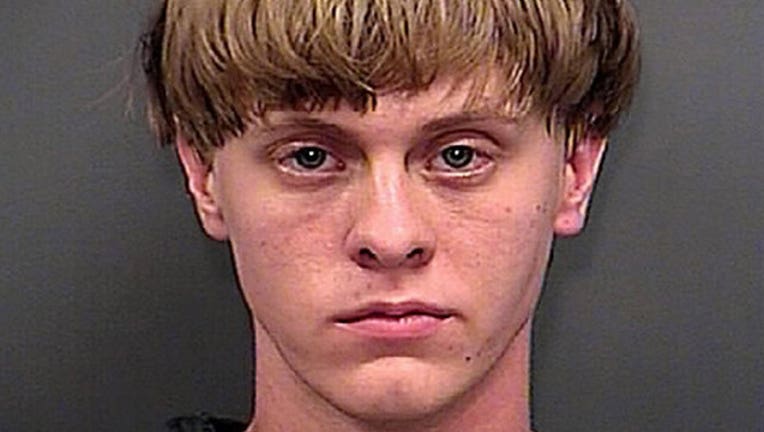Convicted church killer wants to fire Jewish, Indian lawyers

Dylann Roof on June 18, 2015. (Charleston County Sheriff's Office)
COLUMBIA, S.C. (AP) - A white supremacist who was sentenced to death in the 2015 massacre of nine black worshippers has told a federal appeals court he wants to fire his appellate attorneys because one of them is Jewish and the other is Indian-American.
In a handwritten request filed Monday with the 4th U.S. Circuit Court of Appeals in Richmond, Virginia, Dylann Roof wrote that his attorneys' backgrounds are "a barrier to effective communication."
Given their ethnicities, Roof wrote, "it is therefore quite literally impossible that they and I could have the same interests relating to my case."
"Because of my political views, which are arguably religious, it will be impossible for me to trust two attorneys that are my political and biological enemies," he added.
Roof, 23, has been on federal death row since earlier this year, after a jury convicted him of dozens of charges including federal hate crimes and obstruction of the practice of religion in the shooting deaths of nine Bible study attendees at Charleston's Emanuel AME, one of the oldest black churches in the South.
Roof told authorities he wanted to start a race war with the June 2015 massacre, and handwritten journals featuring symbols associated with Nazis and Roof's personal musings about the genetic supremacy of the white race were presented during his trial.
A focal point of Roof's trial was his request to drop his defense team and represent himself. After closed-door hearings, a judge determined Roof was competent to act as his own attorney during the sentencing phase of his trial, provided his legal team stay on as standby counsel.
In Monday's filing, Roof also noted that David Isaac Bruck - a noted death penalty lawyer who was his primary attorney during the federal trial - was also Jewish, saying Bruck's "ethnicity was a constant source of conflict even with my constant efforts to look past it."
As his own lawyer, Roof called no witnesses and put up no evidence in his own defense. In brief closing arguments, Roof told jurors he didn't expect their mercy.
"I have the right to ask you to give me a life sentence, but I'm not sure what good it would do anyway," Roof said. "I still feel like I had to do it."
In May, Roof asked the same appeals court to overturn his conviction and death sentence for the slayings at Charleston's Emanuel AME Church.
___
Kinnard can be reached at http://twitter.com/MegKinnardAP. Read more of her work at http://bigstory.ap.org/content/meg-kinnard/

